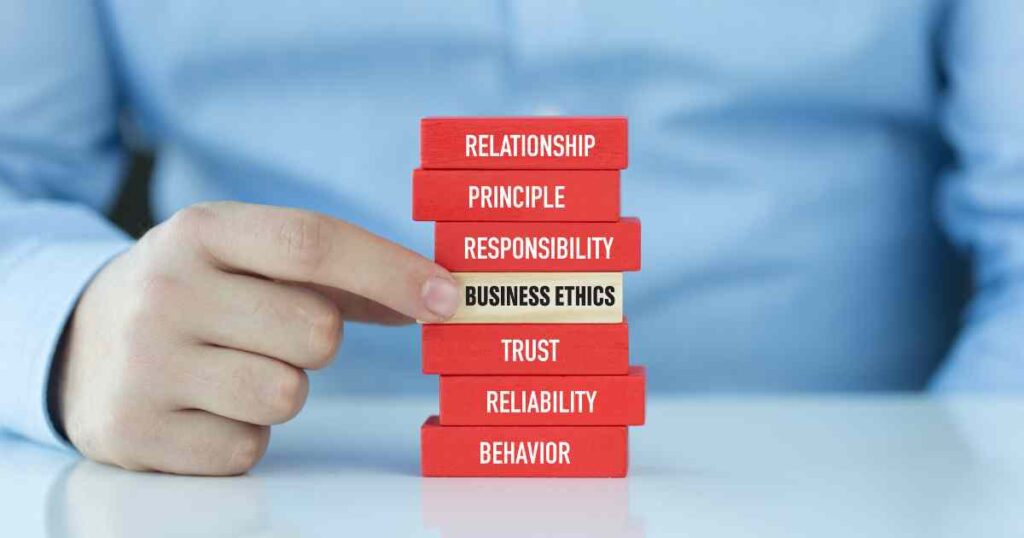HRM is super critical for any business. HRM or HR manager’s main goal is to oversee employees from the time they start to the time they leave the company. From hiring new talents, getting them up to speed, sorting out their benefits, and training them, this takes care of everything. HRM takes care of a company’s needs, but it also has a big responsibility to look out for its employees. That’s when HR really has to consider the ethical implications.
The Importance of Ethics in HRM
The ethics of HR can have a significant influence on the work culture and the employee satisfaction. HR managers should adhere to ethical values and practices that ensure fairness and justice for all. The ethics of HR are vital for the success and well-being of an organization and its workforce. Ethical HR practices foster trust, respect, and loyalty among employees and the employer. This can result in happier employees, higher productivity, and lower turnover.
Finding the right balance between what’s best for the company and looking out for employees is key to having good HR practices. HR pros need to get a grip on the ethics behind their choices and moves, and make decisions that work for the good of everybody – the business and the staff.
Ethical Issues in HR
Human Resources personnel have to grapple with loads of ethical dilemmas on a regular basis. These issues can go from privacy worries to discrimination and harassment. A major ethical dilemma in HR is how to manage employee data. HR professionals are tasked with handling private employee data, such as Social Security numbers, medical history, and financial info. It’s super important that they treat this info with care and respect. This is part of the ethics of HR that requires confidentiality and integrity.
A major ethical problem with HR is discrimination and harassment. HR pros got to make sure all employees are treated justly and without prejudice. Preventing any sort of harassing behavior based on gender, ethnicity, religion, sexuality, or any kind of characteristic that’s protected. This is part of the ethics of HR that requires respect and fairness for all.
HR Values and Ethics
Organizations need to have a set of HR values & ethics to make sure HR pros maintain ethical standards. The company should act in line with fairness, honesty, and consideration for its staff. HR values and ethics should be explicitly communicated to all employees and enforced with designated policies and rules.
HR managers should get continual training and growth to make sure they’ve got the abilities and info they need to make moral calls. They should have access to resources to help them figure out ethical dilemmas, like an ethics hotline or an ethics committee.
Balancing business needs with employee well-being
It is the duty of HR professionals to strike a balance between an organization’s business requirements and its employees’ well-being. Given that they frequently fight for resources, this can be a difficult job. However, any organization’s performance depends on having a happy, engaged staff. By putting an emphasis on employee growth and development, encouraging work-life harmony, and creating a positive work atmosphere, HR pros can strike a compromise between company requirements and employee well-being.
Promoting ethical values in HRM
HR managers can promote the ethics of HR by establishing a code of ethics that outlines the components & values that direct their behavior. The code should include standards to ensure confidentiality, non-discrimination, and staff protection. These are some of the key aspects of the ethics of HR that HR pros should uphold. HR pros should also give employees the lowdown on ethical behavior and create an environment of responsibility where they feel comfortable to share any shady goings-on. HR pros should check in regularly to make sure their practices and policies are in line with good morals.
Conclusion
Maintaining a positive work atmosphere and fostering employee wellbeing depend on ethics in HRM. The requirements of the company and those of the employees must be balanced by HR professionals. Creating a good work environment, tackling ethical dilemmas like harassment & prejudice, and sticking by ethical guidelines in HRM is very important. HR pros need to be cognizant of their moral responsibilities to employees and make sure their approaches and policies align with ethical standards.

